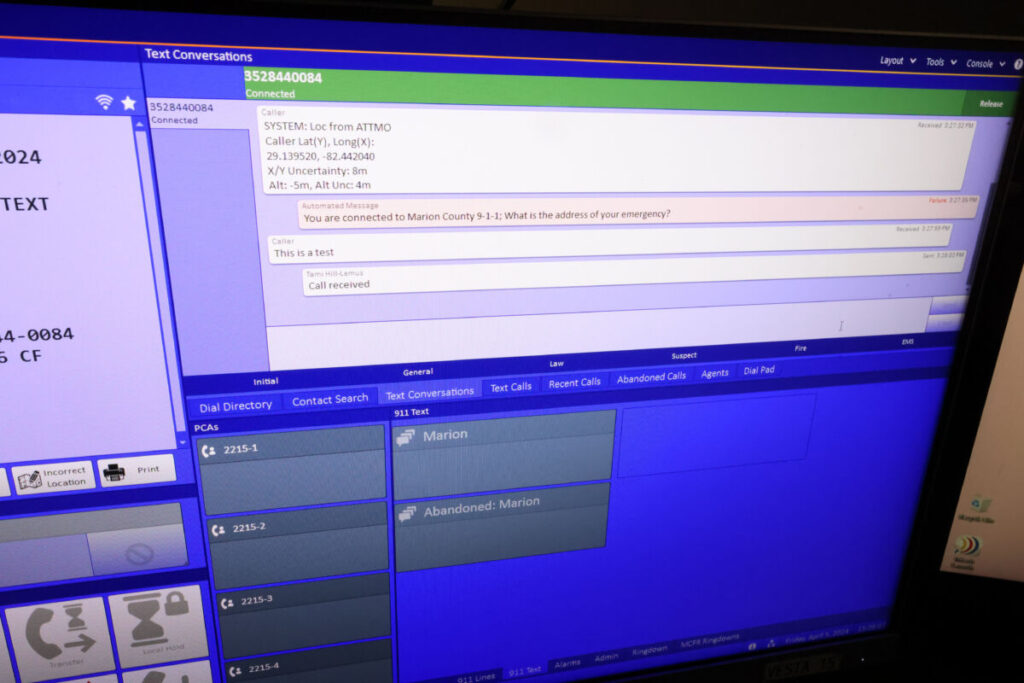What happens when you call 911 in Marion County?

A test text on the 911 Text system is shown on a monitor in the 911 Communications Center at the Marion County Sheriff’s Office in Ocala, Fla. on Friday, April 5, 2024. [Bruce Ackerman/Ocala Gazette] 2024.
Depending on where you make a 911 call in Marion County, you’ll ring into one of two call centers: one operated by the Ocala Police Department or the Marion County combined communications center based at the Marion County Sheriff’s Office.
The call typically will route to the center associated with the location of the caller. Sometimes, however, callers from unincorporated enclaves within Ocala will ring into OPD, but those calls can be transferred easily. Also, callers from outside Marion County at times will ring into the county centers due to their location and nearby cellphone towers.
While landline phones automatically provide an address to call takers, cell phones offer a range for your location, and that range can vary in accuracy. Consequently, knowing one’s location is still vital when calling 911.
This is one of the reasons why the public safety telecommunicator (PST) will ask for your address and phone number twice. This is especially important to remember if the caller is reporting an incident that is not at their home address, such as an automobile accident miles away.
While knowing the exact address will lead to quicker response, Lauren Pozdol, a night shift supervisor who has worked for OPD for six years, told the “Gazette” that callers can also share landmarks. “If someone tells me I’m near the rock that looks like a peanut, I know they are near the intersection of NE 28th Street and 14th Avenue,” she gave as an example.

The “peanut rock” landmark at NE 14th Avenue and NE 28th Street. April 10, 2024 [Jennifer Hunt Murty/Ocala Gazette]
For residents who are deaf or hard of hearing, both centers are equipped with TDD/TTY. Furthermore, both centers support text-to-911 capabilities for those who cannot make voice calls during an emergency, although voice calls are recommended when possible for their immediacy and ability to convey more nuanced information.
Both centers phone back abandoned calls, however, we should note that if we call 911 from a cell phone restricted for that purpose- PSTs are not able to return the call.
Residents are reminded that 911 is designated for situations requiring immediate assistance from police, fire, or emergency medical services. For nonemergency, the public should call (352) 369-7070 inside the City of Ocala and (352) 732-9111 outside the city limits.
Children should be trained on how to use 911 effectively, ensuring they know their name, address, and how to describe their location.
Here are some tips to help first responders find you quickly in an emergency:
* Clearly mark your house number. Well-lit numbers of at least 4 inches are recommended.
* If you live in an area confusing for others to find, write down driving directions from Ocala to your house so the call taker has a common point of reference.
* Test your directions and the visibility of your house numbers during the day and night.
* Keep a list beside your phone of relatives and close friends, particularly those who may be tracking you.
* If you live in a gated community, always call 911 first.





